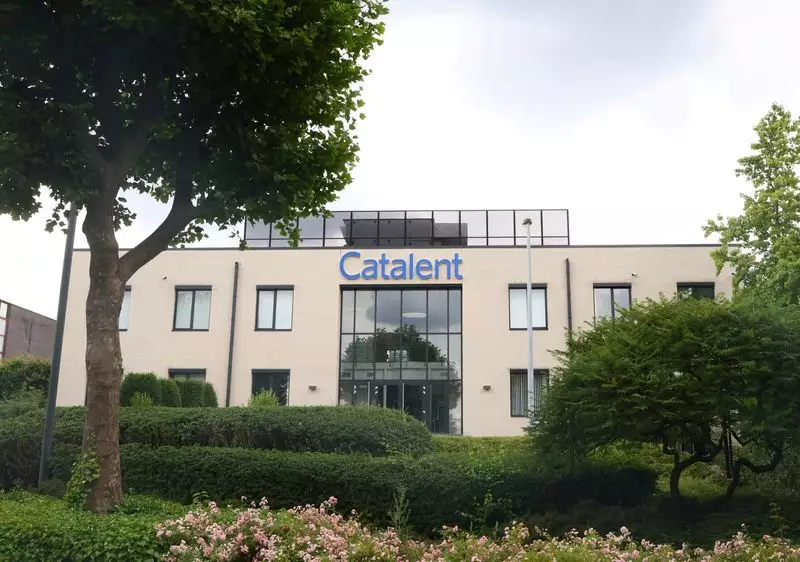The landscape of the pharmaceutical industry may witness a significant disruption as U.S. consumer advocates and labor organizations take a firm stand against Novo Holdings’ proposed acquisition of Catalent, Inc. Valued at $16.5 billion, this deal has raised alarms regarding potential anti-competitive practices, particularly in the burgeoning markets of weight-loss medications and innovative gene therapies. This acquisition could have profound implications not just for market dynamics but also for the future availability of critical medical treatments.
The intervention of U.S. Public Interest Research Group and the Service Employees International Union underscores a collective worry stemming from the proposed transaction. In their communication to the Federal Trade Commission (FTC), they urgently called for a comprehensive review of the acquisition’s implications. Prominent political figures, including U.S. Senator Elizabeth Warren, have also voiced their apprehensions, emphasizing the necessity for regulatory scrutiny. The consumer groups argue that the deal poses a substantial risk to competition, particularly with respect to companies such as Amgen and Pfizer, who have been diligently developing their own GLP-1 medications to compete with Novo’s Wegovy, a highly successful treatment for obesity.
These organizations contend that the acquisition could stifle innovation and limit choices for both healthcare providers and patients. The pressure on competitors to enter a market dominated by a combined Novo Holdings and Catalent entity could deter investment in new drug development, dissuading emerging players from entering the space altogether. This potential monopolistic behavior raises serious concerns over consumer welfare and market health.
Novo Holdings intends to diversify its operations not merely by acquiring Catalent but also by subsequently selling three of Catalent’s specialized manufacturing facilities to its subsidiary, Novo Nordisk. These facilities have the capability to manufacture injection pens in sterile conditions, critical for various pharmaceutical products. Novo Nordisk has publicly maintained its commitment to uphold existing contracts at these facilities while claiming that there is currently no active production of competing GLP-1 products at the sites.
Despite these reassurances, skepticism remains pervasive. Consumer advocates highlight that the transaction could significantly hinder competitors’ abilities to bring new drugs to market, especially for those firms that rely on the same manufacturing capabilities provided by Catalent. If competitors cannot access sufficient production resources or expertise, it may lead to reduced competition in the sector, ultimately creating a scenario where patients may face fewer options and higher costs for medications.
The implications of the proposed merger extend beyond the realm of weight-loss drugs. The consumer groups have articulated fears that the acquisition could obstruct Catalent’s capacity to produce important gene therapies, a rapidly developing field that promises to revolutionize treatment for numerous diseases. Specifically, Catalent is engaged in collaborations with key players in the bio-pharmaceutical space, including Sarepta Therapeutics and Novartis, producing therapies that are critical for their respective operations.
The letter from the consumer groups emphasizes that while the immediate focus might be on GLP-1 drug competition, the potential ripple effects on future therapies, including gene treatments, require equal consideration. The absence of sufficient manufacturing capabilities for such innovative therapies could impede progress within the sector, and that is a matter that must be seriously evaluated by the FTC.
In light of the growing opposition to the acquisition, Novo Holdings expressed confidence in their position, asserting that the deal would ultimately enhance competitiveness and bolster supply chain capabilities. Catalent echoed these sentiments, maintaining that the acquisition would fortify its capacity to deliver medical products effectively to various stakeholders in the healthcare system.
However, the hesitance from other industry players, such as Viking Therapeutics and Roche, to comment amidst these developments indicates an ongoing apprehension regarding how the merger might reshape the competitive landscape. Although Roche has prepared contingency plans for its clinical trials and production strategies, its silence on the potential fallout from this proposed deal suggests that there are indeed concerns that might warrant deeper analysis.
As the FTC prepares to assess the implications of this significant acquisition, it must consider the broader ramifications on the pharmaceutical landscape. The potential stifling of competition, coupled with the possible repercussions for innovative treatment options, underscores the importance of diligent regulatory oversight. A careful examination not only protects market integrity but also secures the availability of essential medications for consumers. The concerns voiced by various stakeholders highlight the critical need for the FTC to weigh the long-term impacts of the acquisition on healthcare markets prudently.

